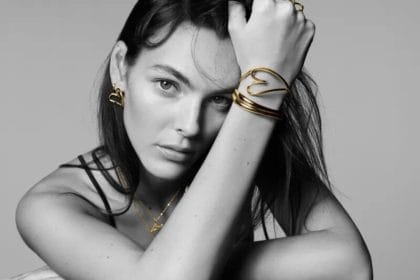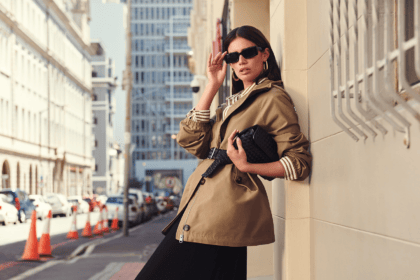The 1990s were an era of vibrant and eclectic fashion fueled by cultural shifts, technological advancements, and a growing sense of individuality. This transformative decade saw the rise of the supermodel, the birth of grunge, and an unprecedented blend of high fashion with streetwear. From minimalist aesthetics to bold, glamorous designs, the ’90s presented a rich tapestry of styles that continue to influence today’s fashion world. Here, we delve into some of the most influential fashion brands that shaped the sartorial landscape of the ’90s.
1. Calvin Klein
Calvin Klein was a 1990s fashion powerhouse known for its minimalistic aesthetic and provocative advertising campaigns. The brand’s iconic underwear, often sported by supermodels like Kate Moss and celebrities like Mark Wahlberg, became a cultural staple. Calvin Klein jeans, with their sleek, clean lines, were also immensely popular, cementing the brand’s status as a symbol of ’90s style.
2. Tommy Hilfiger
Tommy Hilfiger epitomized the casual, all-American look that was hugely popular in the ’90s. The brand’s red, white, and blue logo became synonymous with preppy fashion. Hilfiger’s clothes, often oversized and emblazoned with the brand’s distinctive flag, were favorites among hip-hop artists and suburban teens, reflecting the decade’s blend of high and street fashion.
3. Versace
Versace brought a bold, glamorous flair to the 1990s. Known for its lavish designs and vibrant prints, Versace was the epitome of opulence. The brand’s founder, Gianni Versace, was a key figure in the rise of the supermodel phenomenon, famously dressing the likes of Naomi Campbell and Cindy Crawford. Versace’s allure was in its daring aesthetic, marrying sensuality with luxury.
4. Ralph Lauren
Ralph Lauren continued to dominate the fashion scene in the ’90s with its timeless, classic style. The brand’s Polo line, in particular, was a linchpin of ’90s fashion, epitomizing the era’s love for aspirational yet accessible clothing. Ralph Lauren’s influence was pervasive and enduring, from the rugby shirts and chinos to the iconic Polo Bear sweaters.
5. DKNY (Donna Karan New York)
DKNY captured the essence of urban chic, catering to the modern woman’s wardrobe needs. With its city-smart designs and versatile pieces, DKNY offered a more accessible take on Donna Karan’s high-end line. The brand’s simple yet sophisticated pieces became wardrobe staples, making it a go-to choice for working women and fashion-forward city dwellers.
6. FUBU (For Us, By Us)
FUBU was a trailblazer in streetwear, founded by Daymond John and his partners. The brand’s ethos was deeply rooted in hip-hop culture, and its clothing showcased bold logos, baggy silhouettes, and urban aesthetics. FUBU’s rise to prominence was emblematic of the broader mainstream acceptance and celebration of street culture in the ’90s.
7. Gucci
Under the creative direction of Tom Ford, Gucci underwent a dramatic transformation in the ’90s. Ford injected a heavy dose of sex appeal into the brand, manifesting in slinky dresses, luxe fabrics, and provocative ad campaigns. This reinvention revitalized Gucci, making it a magnet for celebrities and fashion aficionados.
8. The Gap
In the ’90s, The Gap was a basic yet stylish clothing staple. Known for its iconic commercials and classic pieces like khakis, denim, and logo sweatshirts, The Gap provided a go-to option for casual and comfortable attire. The brand’s emphasis on simplicity and quality made it beloved among a wide demographic.
9. Nautica
Nautica appealed to those drawn to the nautical and preppy aesthetic. Its crisp, relaxed, and maritime-inspired designs made Nautica synonymous with laid-back sophistication. The brand’s focus on quality outerwear, knits, and casual separates made it a ’90s favorite, especially among those with an affinity for the nautical lifestyle.
10. Chanel
Although timeless and transcending eras, Chanel maintained its stronghold in the ’90s under the visionary leadership of Karl Lagerfeld. The brand continued to innovate while staying true to its classic roots. Its signature tweed suits, quilted handbags, and interlocking C logo were as relevant as ever, appealing to both the traditional and modern woman.
Conclusion
Whether it was the sleek minimalism of Calvin Klein, the opulent extravagance of Versace, or the urban edginess of FUBU, these brands not only captured the spirit of the times but also left an indelible mark on the future of fashion. While some have evolved and others remain true to their roots, the legacies of these iconic ’90s brands continue to resonate, reminding us of a time when fashion was both a personal statement and a cultural phenomenon.

















